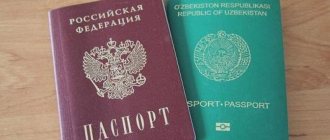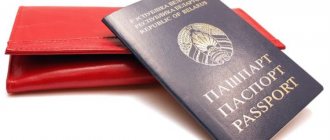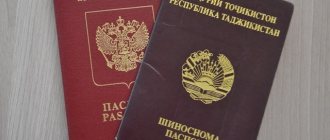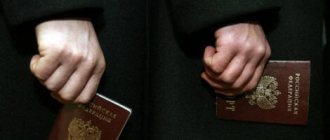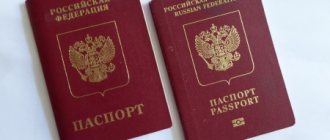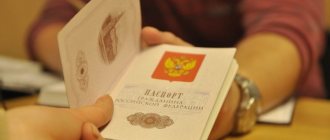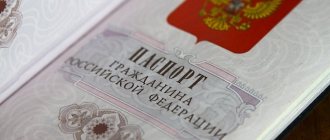Dual citizenship or two citizenships: what is the difference?
People who do not delve into the intricacies of jurisprudence do not know the differences between the terms. In fact, there are significant nuances here.
Dual citizenship - a citizen of the Russian Federation has citizenship (nationality) of a foreign state (paragraph 4 of article 3 of Federal Law No. 62-FZ)
Dual citizenship in the Russian Federation is possible when states sign an agreement on dual recognition of citizenship. To date, Russia and Tajikistan have signed the agreement. The international agreement with Turkmenistan was valid until May 18, 2015.
The agreement allows a person to choose where to serve military service or to which state to pay taxes. Citizens' rights will be respected equally by both countries.
They talk about second citizenship if there is no agreement between states. In this case, each state perceives a person as its citizen.
The concept of dual citizenship
Dual citizenship predetermines the essence of the state and legal policy of the state in the field of citizenship.
In domestic law there is dual citizenship, according to the established tradition during the Soviet era. We have already completed an abstract
State authorities of the USSR in more detail are considered primarily as a conflict of laws and undesirable phenomenon. Although the Constitution of the Russian Federation dated December 12, 1993 introduced a norm recognizing dual citizenship.
According to part $1$ of article $62$ of our Constitution, we have already completed course work
Functions of the Constitution in more detail, a citizen of Russia may have citizenship of a foreign state, i.e. dual citizenship, in accordance with an international treaty of the Russian Federation or federal law.
Finished works on a similar topic
- Coursework Dual citizenship benefits and difficulties 420 rub.
- Abstract Dual citizenship benefits and difficulties 280 rub.
- Test work Dual citizenship benefits and difficulties 200 rub.
Receive completed work or advice from a specialist on your educational project Find out the cost
Definition 1
Dual citizenship is a specific political and legal status of an individual, in which he simultaneously possesses the citizenship of more than one foreign state.
Dual citizenship significantly complicates the legal position of a person who has more than one citizenship. This is due to the fact that its legal connection with several states gives rise to both double rights and double obligations.
By its nature, dual citizenship can be legal or illegal. In the first case, the state whose citizenship the person has recognizes his citizenship of another state. In this case we are talking about dual citizenship. In the second case, the state ignores the presence of other citizenships of its citizen. Here we can talk about multiple citizenship. It should be noted that in domestic legal acts and international legal treaties these concepts are used as synonyms.
Need some teacher advice on a similar topic? Ask a question to the teacher and get an answer in 15 minutes! Ask a Question
Is it allowed to have a second citizenship in Russia?
According to the laws in Russia, multiple citizenship is allowed. In order for the issuance of an additional passport to be legal, it is necessary to notify the regulatory authorities.
According to Law No. 62-FZ, a Russian citizen must submit a notification of second citizenship to the migration department of the Ministry of Internal Affairs of the Russian Federation within two months. You can notify:
- personally,
- with the help of a legal representative,
- send a postal notification through the Russian Postal Service.
The procedure for submitting a notification and the exact content of the information are described in detail in Law No. 62-FZ (Article 6).
Is it possible to have a second citizenship in Russia?
The answer to this question depends on whether you are a Russian citizen. In general, second citizenship is allowed in Russia, but there are some restrictions.
If you are a citizen of the Russian Federation, then you can obtain a second citizenship and there will be no punishment for this. But immediately after receiving another citizenship, you must notify the migration authorities about this.
If you are an adult foreign citizen and want to obtain Russian citizenship, you can only do this if you renounce your current citizenship. If Russian citizenship is issued to a child of foreign citizens, then he may have dual citizenship. More recently, citizens of Turkmenistan and Tajikistan were also an exception. They could easily obtain a second citizenship until 2015; starting from May 18, 2015, the procedure for obtaining Russian citizenship became the same for them as for other foreigners.
At the same time, a citizen who has Russian citizenship and a second citizenship of another country is perceived by the government bodies of the Russian Federation only as a citizen of our country. That is, this person must receive government services and travel outside the territory of Russia only with a Russian passport. But in other countries this person can use a second passport.
Info
Citizens of Russia are not prohibited from having citizenship of another state; this is written in the Constitution of the Russian Federation.
When you cannot have additional citizenship
In Russia there are some categories of citizens who are not allowed to obtain dual citizenship:
- Citizens in public service.
- Citizens working in the media.
- Employees of broadcasting and cable broadcasting companies.
- Members of the Public Chamber.
- Voting members of the election commission.
Statesmen: The Painful Search for Dual Citizenship
We remember very well how, during the widespread campaign for participation in the summer plebiscite on constitutional reform, among the most lethal arguments was the inclusion in the text of the Basic Law of a provision prohibiting civil servants and deputies from having passports of foreign countries, residence permits or accounts in foreign banks. Actually, such a ban has existed for a long time, but the Constitution should have given it a sacred character.
True, logic also required a ban on owning real estate outside Russia. Indeed, how can you own a house in Spain without accounts that would allow you to service this property? But, as they say, our statesmen fought back from this restriction. There was even a joke that otherwise any government would have to be dissolved.
Meanwhile, the public was lively discussing the unofficial lists of double-dealers, ministers and deputies who allegedly possessed dual citizenship, which were circulating on the sidelines. Against the backdrop of growing dissatisfaction with the passivity of the government, which allegedly does not adhere to its own catchy promises, the speaker of the State Duma, Vyacheslav Volodin, attempted to put an end to numerous speculations in this regard, turning to the head of the Central Election Commission, Ella Pamfilova, for help. However, she did not show zeal in this matter, recalling that her department only checks the dossier of candidates, and their fate after election is beyond its competence. So the question hung, leaving room for the wildest fantasies.
But here's what's remarkable. As soon as someone from the powers that be falls into disgrace—under investigation and trial—the general public immediately learns a lot of interesting things about them, including in terms of close ties with foreign countries. Lieutenant General Sergei Mileiko, in the very recent past one of the leaders of the Russian Guard, was sent under arrest. He is charged with fraud and abuse of office. And then it suddenly became clear that his children had long been a citizen of a foreign state, and his wife had foreign real estate, which, of course, did not appear in any declarations. And we are talking about a man in high uniform who solemnly took an oath to defend the country and the law.

Sergey Mileikotularegion.ru
It turns out that you can find out all sorts of details that are of interest to the public, if there is legal will. By the way, another prominent prisoner and fraudster, Alla Laletina, a former high-ranking employee of Rostec, was found to have a luxurious apartment in the Emirates, which was also never reflected in her property declaration. Three years ago, by the way, Laletina received the Order of Friendship from the hands of the president.
It is clear that multi-colored passports of children, a house in distant lands, registered in the name of a spouse - isn’t this a piece of straw laid out for yourself just in case? And no one should be surprised by the hidden Romanian passport of Karina Turcan, accused of espionage, a former top manager of Inter RAO, a state-owned company dealing with the strategic issue of supplying electricity abroad. By the way, millions of dollars were confiscated from her during the search.
No one is surprised anymore by the Israeli passport of Alexander Vinokurov, the son-in-law of Foreign Minister Sergei Lavrov. Or, as they say, the Norwegian passports of the children of HSE Rector Yaroslav Kuzminov. There are rumors that this circumstance may prevent the transition of his wife Elvira Nabiullina, now the head of the Central Bank, to the government. And, as we see, even when the prohibitions are formally observed, officials are looking for all possible workarounds to create their own reserve airfields over the hill.
It is unlikely that such a situation strengthens confidence in the fair decisions of the authorities, who are well aware of how “foreign sins” are an excellent lever for recruitment. By the way, information about the French passport of Sergei Kiriyenko’s daughter came to light not long ago. In response, Lyubov Sergeevna promised to sue the slanderers. I would like for such a case to not be limited to refutations and actually go to court, so that all the i’s are dotted.
The most interesting things are in our Yandex.Zen channel
subscribe
Advantages of obtaining multiple citizenship
Having a second citizenship has many positive aspects, namely:
- A person chooses which country to live in. Without visas and other difficulties.
- Visa-free travel to certain states (according to the laws of the state of second citizenship).
- The opportunity to take your family to another state.
- Choosing citizenship for your children.
- You are allowed to choose in which state to receive your education.
- Employment in other countries.
- The citizen receives social support and medical care from two states.
- In case of danger in one state, a citizen can move to another without any problems.
- In the country of second citizenship there may be better conditions for business (special tax conditions for citizens).
- Income taxes are calculated at the place of residence.
Main differences between dual and second citizenship
Dual citizenship status means that a person has identity documents from two countries that have entered into a mutual recognition agreement. Today, countries with similar signed agreements include France and Canada, Great Britain and Australia, Portugal and Brazil. The Russian authorities have concluded relevant agreements with the governments of Tajikistan and Turkmenistan.
Registration of citizenship status in countries without a mutual recognition treaty is called second citizenship. Most European countries legally allow the possession of two passports. Such countries include Bulgaria, Greece, Spain, Ireland, Latvia, Lithuania, Romania, Poland. The absence of agreements on dual citizenship means that in the case of simultaneous possession of two passports, for example Romanian and Russian, the holder is recognized as a citizen only of the country in whose territory he is located.
There are states that have completely banned the institution of dual citizenship. For example, obtaining a German passport requires written proof of renunciation of previous citizenship.
Distinctive features of dual citizenship
Holders of dual citizenship are under the protection of both countries, and their children will inherit the status of a citizen of two states. Each government has the right to require a dual citizen to perform civic duties while preserving his rights. Tax issues are resolved in the state of residence. Persons who served in the army of the first country cannot be drafted or mobilized into the troops of another country
Features of second citizenship
The main advantage of a second passport is that there is no need to obtain visas or work or business permits. This is convenient for people living in several countries for work or other needs.
Most states follow a policy of non-disclosure of information when issuing second citizenship. A number of Caribbean countries follow a confidentiality rule regarding citizenship by investment. Antigua and Barbuda, Saint Kitts and Nevis, Grenada, Dominica and Saint Lucia do not disclose investor information to third parties.
Applicants applying for second EU citizenship under repatriation procedures are also guaranteed anonymity.
Advantages of a second passport for CIS citizens
For citizens of CIS countries, there is an opportunity to quickly and legally obtain a second EU passport under the repatriation program. The legislation of Bulgaria, Romania and Poland provides for a simplified issuance of the status of an EU citizen while preserving the applicant’s first citizenship. Second citizenship, like dual citizenship, provides the owner with the following rights:
Second citizenship, like dual citizenship, provides the owner with the following rights:
Open and conduct business in EU countries
Study at European universities with the opportunity to receive scholarships
Apply for loans and mortgages in European Union banks
Travel to more than 160 countries without visas
Live in one of the 28 EU member states
Work in any EU country without special permits
Disadvantages of obtaining second citizenship in Russia
In addition to many advantages, having a second citizenship has a number of significant disadvantages:
- Restrictions on employment in Russia. Holders of second citizenship are not allowed to find employment:
- Chairman of the Government of the Russian Federation;
- Deputy Chairman of the Government of the Russian Federation;
- For civil service;
- For municipal service.
- A citizen with a second citizenship cannot be elected as a deputy.
- A citizen with a second foreign citizenship is not allowed to work in companies involved in mass media, television and radio broadcasting.
- In the Russian Federation, a person with two or more passports is considered only as a Russian citizen. Additional citizenship does not provide any privileges.
- Some countries limit career advancement for people with multiple nationalities.
Is dual citizenship allowed in Russia?
There are a couple of interesting points regarding dual citizenship:
- The law does not prohibit having a second passport.
- For its full recognition, in legal terms, there must be an agreement between Russia and the second country.
- Such agreements have practically never been concluded; there are only a couple of agreements currently in force.
- From the Russian point of view, having received a foreign passport, you do not fully acquire all the rights and responsibilities of a foreign citizen. It’s just that you now have another document in your hands that you can use from time to time. But it’s better than the Russian ones.
And this position not only imposes restrictions, but also provides a number of advantages:
| Restrictions | Advantages |
| You will have to give up your career as a politician or even just an effective official. | Young people living outside the Russian Federation may not undergo military service. |
| Officer ranks and real power in the army are also no longer for you. | Possibility of unhindered entry into the country that issued citizenship. |
| In case of litigation, they will be demanded as from a Russian citizen. | If something happens, they will most likely not be extradited to Russian territory. |
Before obtaining foreign citizenship, it is necessary to clearly understand the goals being pursued. It is not recommended to receive a passport of a foreign country just for show. For what? To gather dust on a shelf and block the paths to many structures?
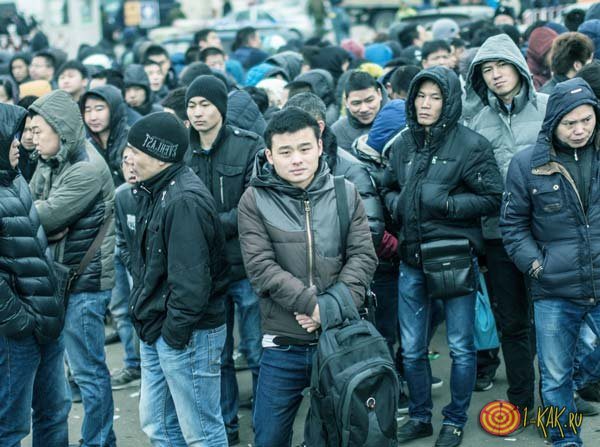
In which countries can you obtain a second citizenship?
The possibility of obtaining multiple citizenship depends on the laws of the selected country. Some states do not allow citizens to have a second Russian citizenship.
| A country | Second citizenship | One citizenship (it is necessary to revoke Russian citizenship) | Dual citizenship (if there is an agreement) |
| Australia | Yes | No | No |
| Azerbaijan | Yes | No | No |
| Argentina | Yes | No | No |
| Armenia | Yes | No | No |
| Belarus | No | Yes | No |
| Belgium | Yes | No | No |
| Brazil | Yes | No | No |
| Great Britain | Yes | No | No |
| Germany | No | Yes | No |
| Greece | Yes | No | No |
| Georgia | No | Yes | No |
| Dominican Republic | Yes | No | No |
| Israel | Yes | No | No |
| India | No | Yes | No |
| Ireland | Yes | No | No |
| Italy | Yes | No | No |
| Kazakhstan | No | Yes | No |
| Canada | Yes | No | No |
| Cyprus | Yes | No | No |
| Kyrgyzstan | No | Yes | No |
| China | No | Yes | No |
| New Zealand | Yes | No | No |
| Poland | No | Yes | No |
| Romania | Yes | No | No |
| Serbia | Yes | No | No |
| USA | Yes | No | No |
| Tajikistan | No | No | Yes |
| Turkmenistan | Yes | No | No (from 05/18/2015) |
| Türkiye | Yes | No | No |
| Uzbekistan | No | Yes | No |
| Ukraine | No | No | No |
| Finland | Yes | No | No |
| Croatia | No | Yes | No |
| Czech | Yes | No | No |
| Estonia | No | Yes | No |
| South Korea | No | Yes | No |
| Japan | No | Yes | No |
From the list it is clear which countries are allowed to have second citizenship for Russian residents. The list of states is not complete. A future citizen can find out all the necessary information on a specific country at the embassy.
Definition of dual citizenship
Dual citizenship is a situation when a citizen of the Russian Federation also has citizenship of a foreign state.
This definition of dual citizenship is enshrined in Art. 62 of the Constitution of the Russian Federation. Important! The right to have citizenship of another state is classified by law as one of the fundamental rights and freedoms of man and citizen. In addition to the basic law of the country, issues of dual citizenship are also regulated by the Law “On Citizenship of the Russian Federation” dated May 31, 2002 No. 62-FZ (hereinafter referred to as the Law “On Citizenship”).
It is necessary to clarify that, within the framework of legal regulation, a person with dual citizenship is a person who has the citizenship of another state in addition to the citizenship of the Russian Federation, only on condition that a corresponding international agreement has been concluded between Russia and another country. If there is no such agreement, then the person is considered exclusively as a citizen of the Russian Federation. This conclusion follows from the cumulative analysis of Art. 62 of the Constitution of the Russian Federation and Art. 6 of the Law “On Citizenship”.
Dual citizenship and two citizenships - the difference Read more
Important! Currently, Russia has only one valid bilateral international treaty, which was concluded on September 7, 1995 with the Republic of Tajikistan - the Treaty between the Russian Federation and the Republic of Tajikistan on the settlement of issues of dual citizenship. This agreement was ratified by law dated December 15, 1996 No. 152-FZ. The text of this agreement is posted on the official website of the Ministry of Foreign Affairs of the Russian Federation.
Citizenship of Ukraine, Belarus, Germany
A citizen of the Russian Federation submits a request to renounce the citizenship of his country in order to obtain Ukrainian citizenship. In practice, an application from a citizen to obtain Ukrainian citizenship is sent immediately after a request to renounce Russian citizenship, and the refusal is not always approved. In fact, it is possible to maintain two citizenships. Belarus does not provide second citizenship, without exception.
German authorities also do not issue a second passport to citizens of other countries. Becoming a German citizen is possible only after renouncing Russian citizenship.
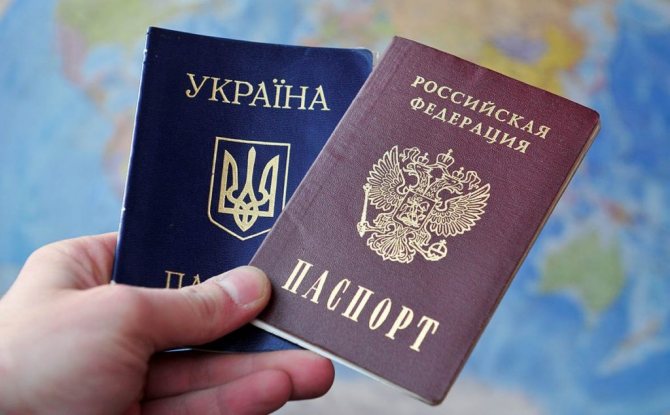
Dual citizenship in the Russian Federation
You don’t have to worry too much about the reaction from the authorities regarding dual citizenship:
- Every citizen of our country has the right to obtain any other citizenship.
- The Constitution does not regulate exactly how many passports a Russian can have.
- In any situation, from the point of view of the law, first of all you are a citizen of the Russian Federation.
- Extradition to another party is possible only if an international treaty is concluded. In the 90s, several such documents were signed with two Central Asian republics.
- It will no longer be possible to get government jobs. There will also be problems with serving in the army on a contract basis.
You have to put up with some disadvantages, but there are also advantages:
- No one will take away Russian citizenship; it can only be lost by presidential decree.
- The authorities will not impose any requirements regarding a second passport.
- No fines, administrative protocols or anything like that.
True, you will have to notify the local FMS office within two months about receiving a new document
. This is the case if you live in Russia.
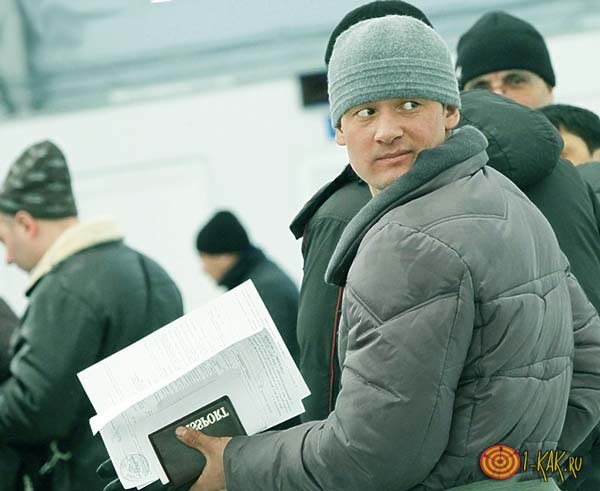
How to get a second citizenship
Obtaining additional citizenship is never easy. Approximate path to second citizenship:
- Obtain a temporary residence permit. The reason may be employment, opening your own business in the country, marriage with a citizen of this country or family reunion, repatriation (return of descendants to their homeland), purchase of real estate.
- After several years, you can apply for permanent residence.
- Having received permanent residence, you can comfortably live in the country for another five to seven years. Then apply for citizenship.
The requirements for a future citizen are high: no problems with the law, the presence of a family, real estate and work, successful passing of an exam on knowledge of language and legislation.
Cyprus allows another way to obtain a new passport. This method will take much less time, but is not available for all countries. You can obtain a second citizenship through investment. If a citizen buys expensive real estate or invests in government bonds, after a short time he will be able to receive a new passport without exams and delays in obtaining documents.
Deadlines for notifying the FMS
If a Russian citizen has received a second citizenship, he must report this to the migration service within the next 60 days to obtain a new citizenship.
You can select a migration office based on your place of actual residence or registration.
If a Russian citizen has received a second citizenship and is located outside our country, then there is no need to specially come to Russia and notify about receiving a second citizenship. You will need to notify the migration services in Russia about your citizenship within 30 days of arrival in the Russian Federation.
Migration to Cyprus
A wealthy foreigner can obtain Cypriot citizenship without a long wait. The passport is issued to newly minted citizens who have invested money in the Cyprus economy. Investments can reduce the period of required residence on the island.
The investment size is as follows:
- 500 thousand euros for the purchase of private real estate;
- 5 million euros for the purchase of assets: deposits, government. bonds, land, shares.
There is another, less expensive way. Collectively (minimum 5 people) invest 2.5 million euros. The total investment amount will be at least 12.5 million euros.
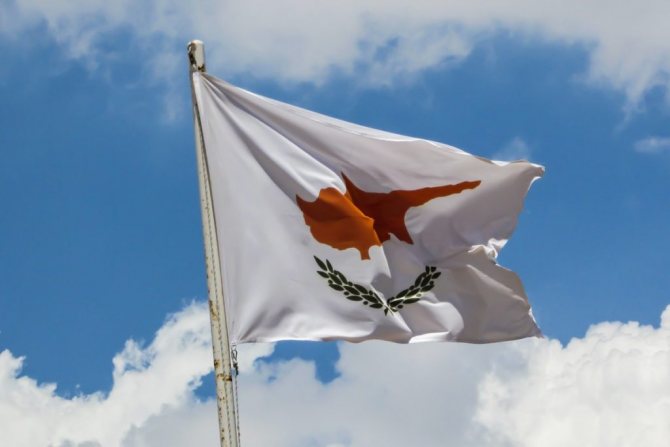
Investors may not know each other. There are intermediary companies for making investments. Funds are invested in real estate, government. bonds, assets, capital construction projects. You must invest a minimum of 500 thousand euros in real estate (you can invest the entire amount). There is a special comment: after three years, the property can be sold, only the citizen’s personal apartments, worth from 500 thousand euros, need to be left.
According to Russian law, citizens are allowed to have both dual and second citizenship. Obtaining a second citizenship requires a lot of finances, time and effort. It is important to remember the need to notify regulatory authorities about the presence of a second citizenship. You can share this information in person or via email.
